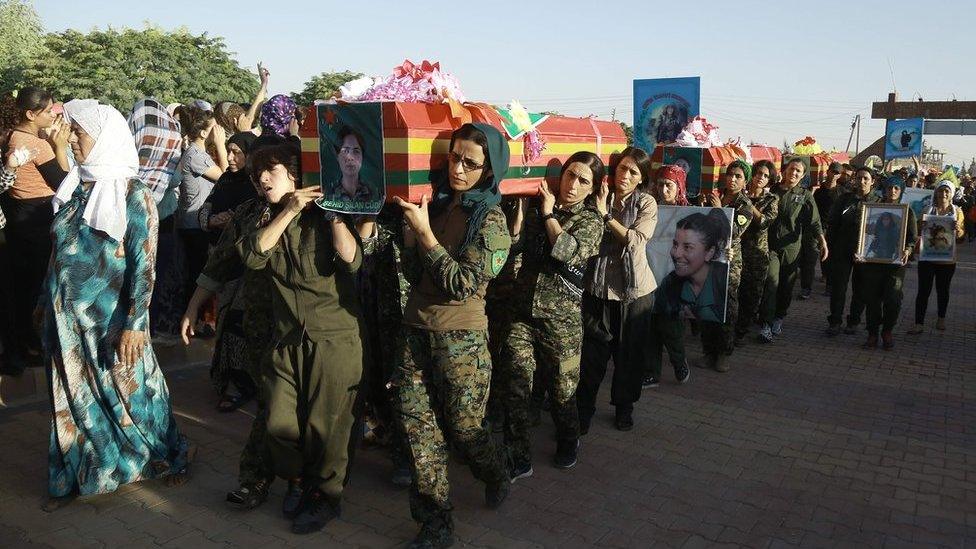Turkey-PKK conflict: Why are clashes escalating?
- Published
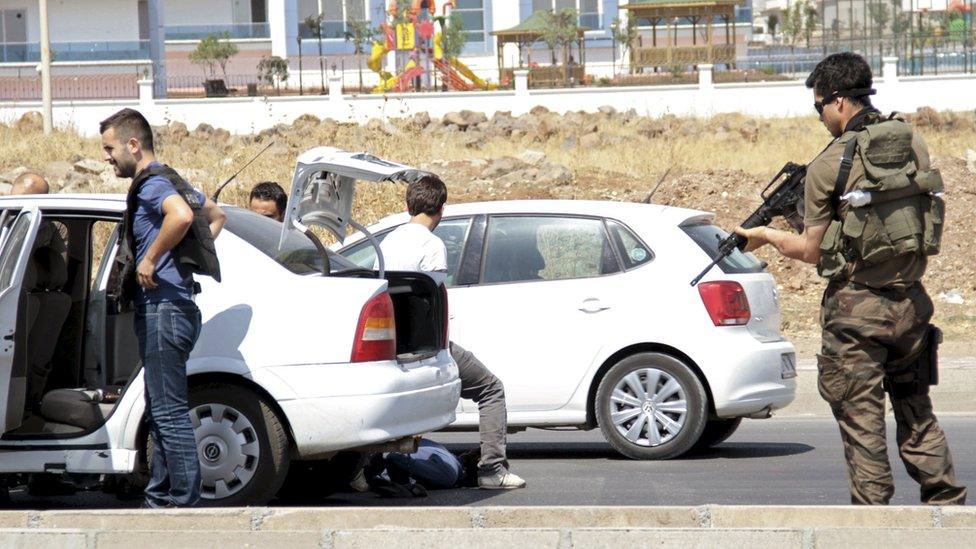
Diyarbakir, eastern Turkey: Cars are being stopped and checked
Turkey has imposed curfews and boosted security in its mainly Kurdish south-east, amid political turmoil over PKK Kurdish rebel attacks.
Turkish nationalists were enraged by a bomb blast on Sunday that killed 16 soldiers, then a rebel ambush that killed 14 police officers in a van - both incidents in the east.
It is a major escalation of ethnic tensions, putting in jeopardy fresh parliamentary elections scheduled for 1 November.
The pro-Kurdish HDP (Peoples' Democratic Party) accused the ruling AKP and Turkish intelligence of orchestrating more than 400 attacks on its offices.
The HDP headquarters in Ankara was gutted by fire after a crowd attacked it.
Turkish nationalists see the HDP as the political wing of the PKK (Kurdistan Workers' Party) - a claim vehemently denied by the HDP.
Since a ceasefire collapsed in July, deadly clashes between Turkish forces and the PKK have intensified.
Turkish jets bombed PKK bases in northern Iraq and the army launched a ground operation.
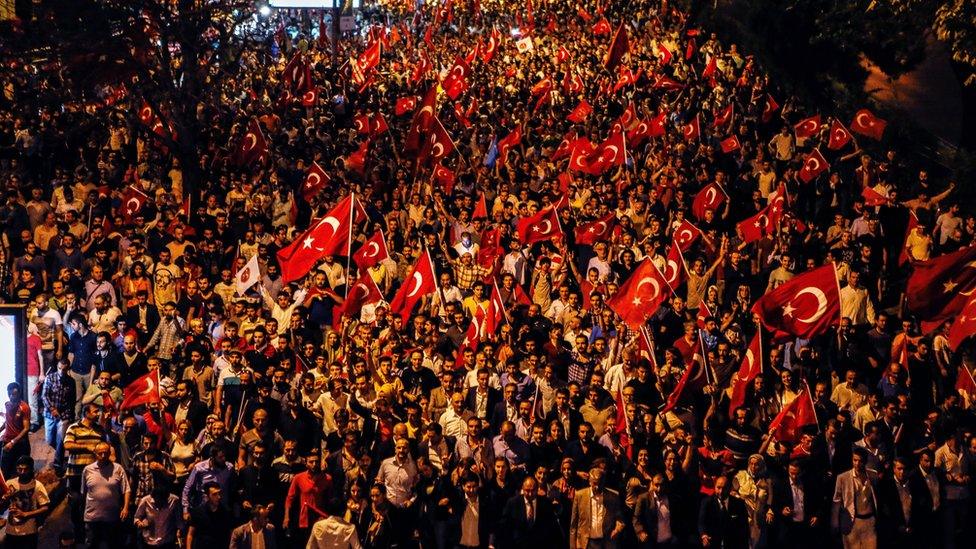
Thousands of Turks rallied against the PKK in Istanbul on Tuesday
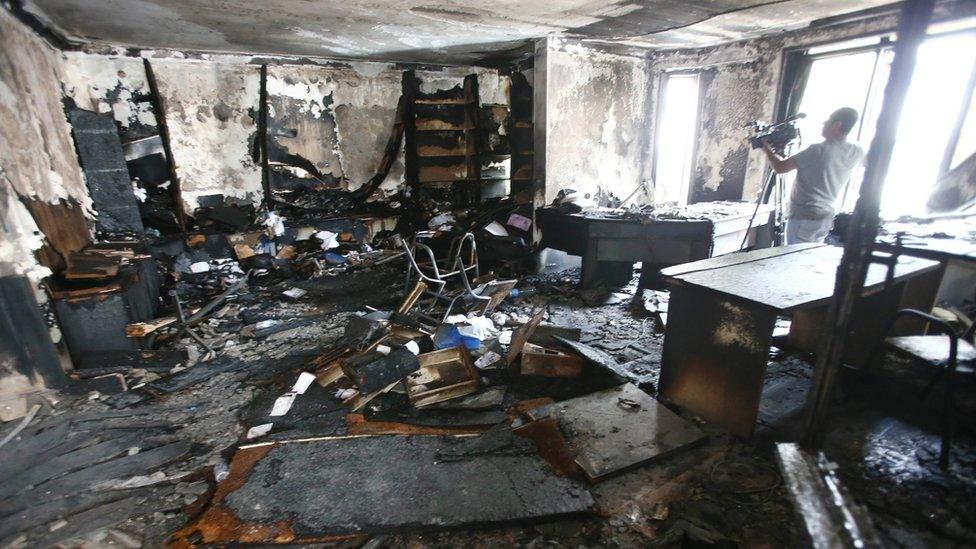
Nationalists caused a blaze that gutted the HDP offices in Ankara
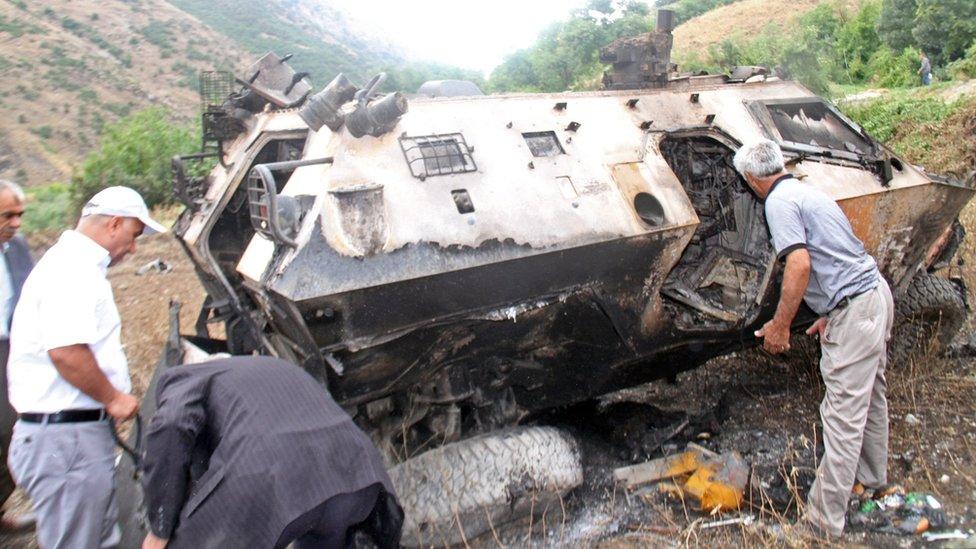
The scene in Daglica after Sunday's deadly ambush of a Turkish troop carrier
Spillover from Syria
The HDP accuses President Recep Tayyip Erdogan of whipping up nationalist feelings in an attempt to engineer the majority that his AK Party needs to rule.
The HDP's success in the June election - winning more than 13% of the vote - denied the AKP a majority. And the AKP's efforts to form a new coalition collapsed.
There is a bigger geopolitical dimension to the latest tensions.
Many Kurds were angered by Turkey's failure to help Kurdish fighters in the battle for Kobane in northern Syria. After months of heavy fighting the Kurdish YPG group pushed so-called Islamic State (IS) militants out of the border town in late June.
On 20 July a suicide bombing killed 32 people - mostly Kurdish youth activists - in Suruc, a Turkish town not far from Kobane.
That fuelled a Kurdish belief that Turkey was avoiding action against IS because the Islamist extremists were a useful tool to prevent the YPG and PKK linking up along its border.
- Published9 September 2015
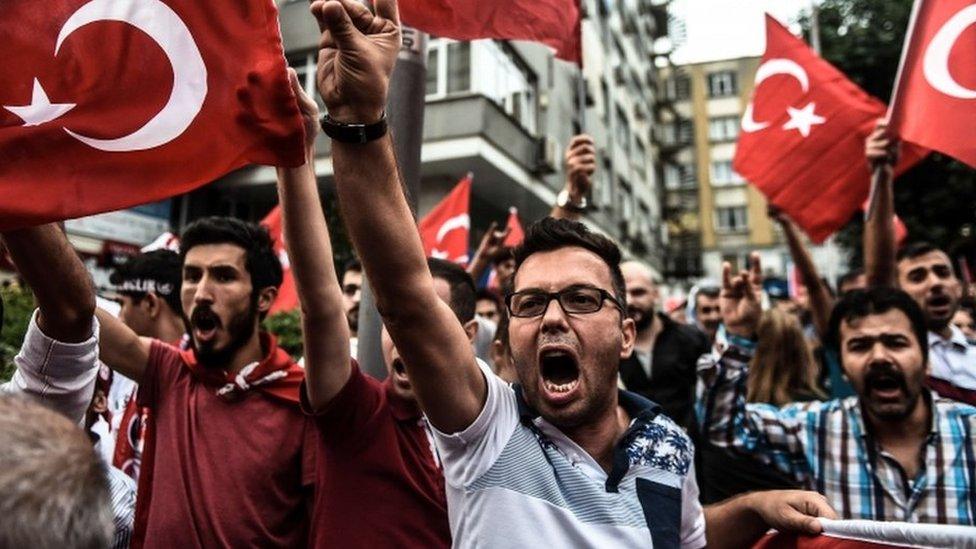
- Published2 September 2015
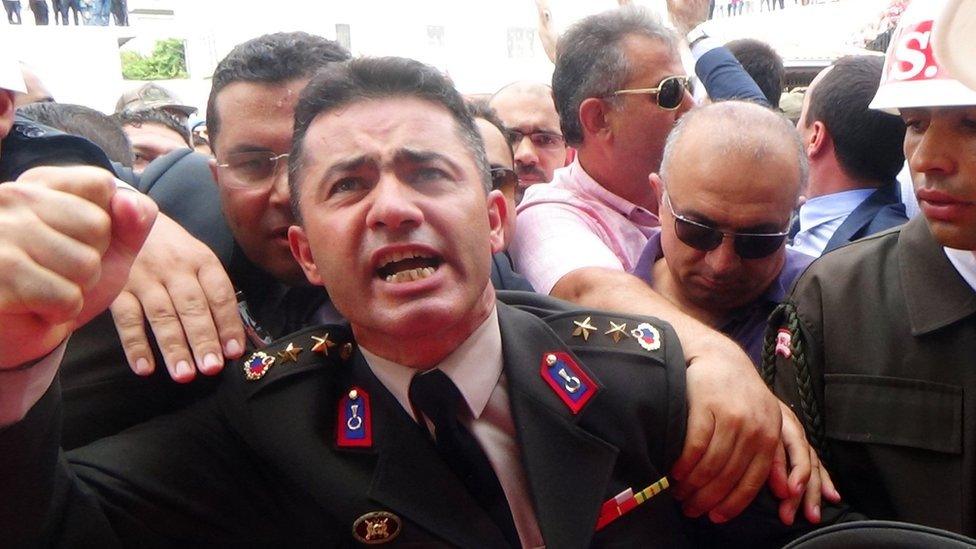
- Published23 August 2016
